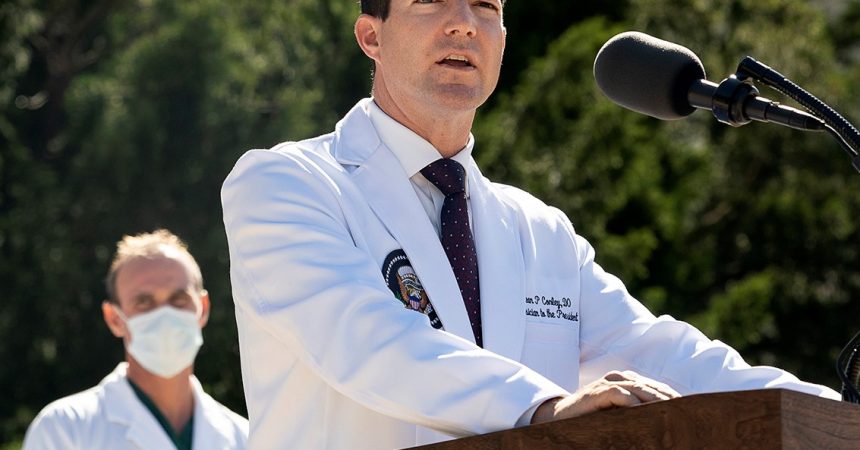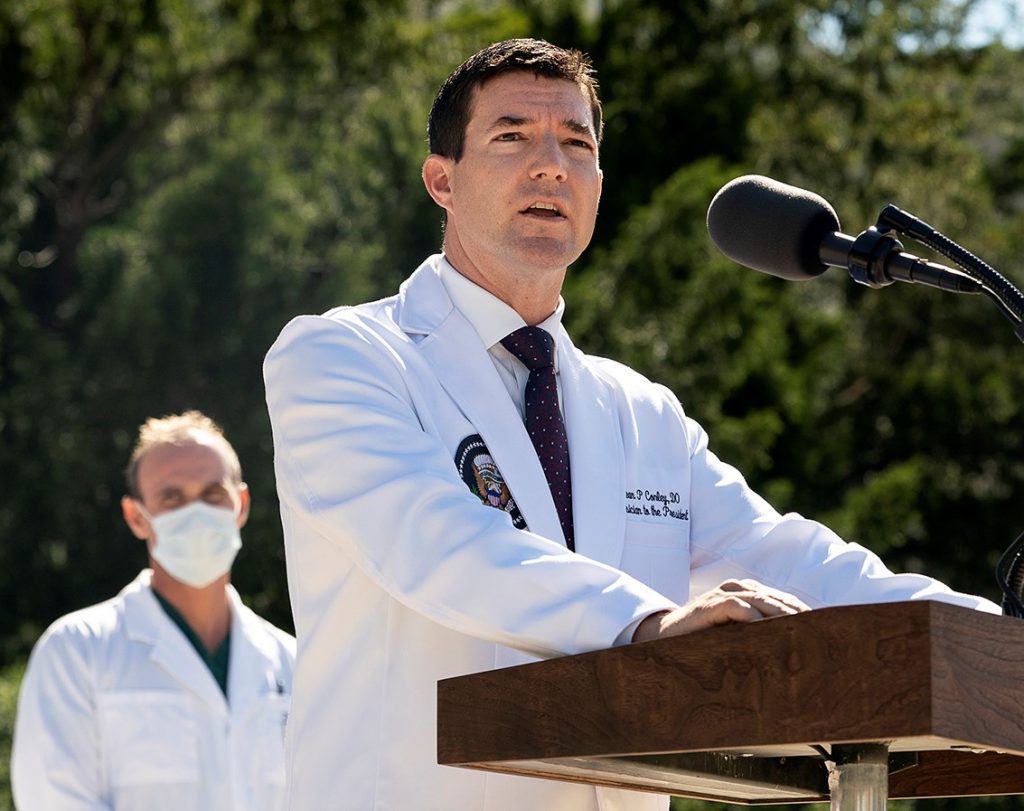
What’s behind President Trump’s COVID-19 treatments? What does it mean for us?
By Glenn Ellis
TriceEdneyWire.com
No matter where you fall on the political spectrum, the entire nation is fixated on, not only the fact that President Donald Trump is infected with COVID-19, but what we all want to know: what’s the deal with those medicines his doctors are giving him?
Since testing positive for coronavirus, Trump has been receiving a number of different drugs – a steroid, an antiviral medication and an experimental drug cocktail. Despite his implications that he is alright and his overture to the public to not fear the coronavirus, it is critical for us all to remember that this virus is not going away any time soon; that his doctors have said he’s “not out of the woods yet”; and experimental drugs aren’t readily available to everyone.
Projections from the CDC say that deaths from the virus in the United States will top 400,000 by the end of the year. That means that this pandemic has the potential for us to see more than 36,000 cases and 2,700 deaths per day by Christmas. However, the fact that a 74-year old, obese man walked out of the hospital a few days after contracting COVID-19 should make us want to know more about what doctors gave him.

White House Photo by Joyce N. Boghosian
So, the absolute best thing we can do to protect the health of ourselves and our families is to know as much as possible about the full range of treatments and/or vaccines that are, or will be, available. But we must continue practicing the CDC guidelines of mask-wearing, social distancing and hand-washing.
First, it is important to understand that there are two phases of a COVID-19 infection. The first phase is the virus infecting the human body, and then the second phase is the one that is most deadly – when the immune system runs at full speed attempting to conquer the viral invaders. The problem this causes is tremendous damage to all of the internal organs, including the lungs, which can eventually lead to death.
President Trump is on a combination of three really powerful drugs. The first is Regeneron monoclonal antibody cocktail, an artificial version of an antibody that is hoped to supply antibodies to help the immune system fight the virus. It is currently in clinical trials, so it does not have Food and Drug Administration (FDA) approval. The second one is Remdesivir, which is also an antiviral drug, which blocks the ability for the virus to duplicate itself. And then there’s the latest one added to his treatment: Dexamethasone.
Though the Regeneron monoclonal antibody cocktail doesn’t have FDA approval, there is an FDA approval loophole. You can be granted access to experimental treatments for “compassionate use.” That’s when everything has failed for a patient, and their only hope to try the unapproved drug; otherwise, they might die. The antibodies Regeneron makes are similar to those made by the people who have caught the virus and survived it.
Regeneron interrupts the virus and stops it from replicating itself thousands of times. What we know so far is that in the clinical trials going on right now, taking Regeneron cuts the time you have symptoms. Regeneron is rarely used to treat patients who have been just diagnosed, like Trump. It is generally only approved for patients who are hospitalized. But in the case of a sitting president, doctors might have to judge the risks and benefits differently.
You might remember that Trump has a close relationship with billionaire, Leonard Schleifer, CEO/Founder of Regeneron Pharmaceuticals. He was the guy who was front and center, in March, along with a group of other pharmaceutical executives at the White House when Trump announced that biotech would solve the pandemic with drugs or vaccines. None of this is a coincidence. Keep your eye on this one.
The next drug in the trio is Remdesivir. It is believed to be most effective in the very early stages of the infection. Even Dr Anthony Fauci said: “The data shows Remdesivir has a clear-cut, significant, positive effect in diminishing the time to recovery”. It is hoped to supply antibodies to help the immune system fight the virus.
Remdesivir is the antiviral drug that was developed in West Africa, to treat Ebola. The way it works is that it confuses the virus because it looks like some of the stuff in your body that it needs to reproduce and survive. Unlike Regeneron, Remdesivir has received approval by the FDA under something known as an “emergency use declaration” for COVID-19 patients. Clinical trials showed effectiveness under some circumstances.
Dexamethasone suppresses the immune system if a patient receives this steroid too soon. It could actually prevent the immune system from fighting the virus in the first place. This is a steroid, and it works by calming the immune system. But it needs to be used at the right time. This is the most controversial of all the drugs Trump was given by his doctors. If a patient is given this too early in their diagnosis, Dexamethasone could actually make things worse by weakening the body’s immune system.
Dexamethasone is not a new drug. It has been used in patients with very severe forms of pneumonia, while it is not as effective in less serious pneumonia. Researchers and scientists feel it should only be used in hospitalized patients who are on ventilators or who require supplemental oxygen. The NIH specifically “recommends against using Dexamethasone for the treatment of COVID-19 in patients who do not require supplemental oxygen.”
The president is also taking zinc, vitamin D, famotidine, melatonin and aspirin. We don’t know whether they have anything to do with the treating his COVID-19 infection.
This information is intended not to make sure you get the medications President Trump had, but to know what he had, so that you make informed decisions about your health. Still, don’t let your guard down, stay informed and follow the CDC safety precautions and guidelines.
Glenn Ellis is a visiting scholar at the National Bioethics Center for Research and Healthcare at Tuskegee University and a bioethics writing fellow at Harvard University Medical School.







